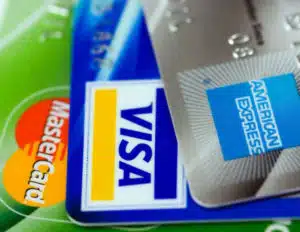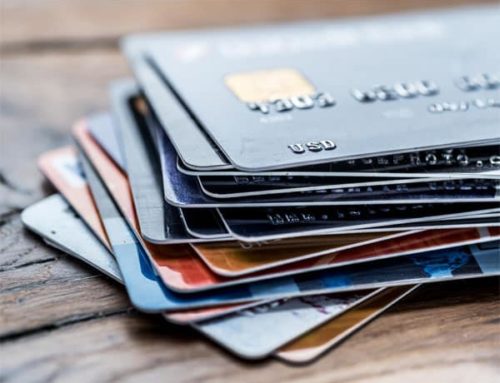 If you have identified an unauthorized charge on your credit card statement, resolving the charge can be essential to maintaining a healthy financial standing.
If you have identified an unauthorized charge on your credit card statement, resolving the charge can be essential to maintaining a healthy financial standing.
However, the process can become complicated if the credit card company declines the dispute.
This article aims to give you all the information you need to handle a credit card dispute.
If you would like assistance from attorneys experienced in credit card disputes, our firm stands ready to help you at no out-of-pocket charge to you. We only get paid if you win.
Contact us by phone at 404-591-6680, or submit a request here: Contact Us
What’s the role of a credit card issuer in a dispute
A credit card issuer is a financial institution that provides credit cards to consumers and businesses. Think American Express, Mastercard, or Chase.
When a dispute arises, the issuer plays a pivotal role as the mediator between the cardholder and the merchant. They are responsible for facilitating the credit card dispute process, communicating with all parties involved, and ensuring compliance with the applicable laws and network policies.
The issuer’s involvement is crucial to determine whether a charge is valid or should be refunded. Their decisions are based on a thorough review of the transaction details, supporting documentation, and the regulations governing credit card transactions.
Consumers, however, are empowered by the law to challenge the issuer’s determination and resolve discrepancies in their billing statements.
What are my rights in a credit card dispute?
Consumer rights in credit card disputes are safeguarded by federal laws, principally the Fair Credit Billing Act (FCBA) and the Truth in Lending Act (TILA).
The FCBA is a federal law designed to protect consumers against unfair billing practices by creditors, including unauthorized charges, charges for goods or services not received, and erroneous charges. It mandates a structured process for addressing and resolving billing disputes, ensuring fair and transparent communication between consumers, creditors, and merchants.
The TILA aims to promote the informed use of consumer credit by requiring clear disclosure of terms and cost of credit, ensuring that consumers have precise information regarding their credit agreements. Additionally, TILA provides provisions for certain consumer rights, such as the right to rescind certain credit transactions and limiting liability for unauthorized credit card use, creating a foundation of trust and transparency between creditors and consumers.
Below is a chart that shows your key rights along with the specific sections of the relevant statutes:
| Consumer Right | Relevant Law |
|---|---|
| Dispute unauthorized charges | Fair Credit Billing Act (FCBA), 15 U.S.C. § 1666 |
| Challenge billing errors | Fair Credit Billing Act (FCBA), 15 U.S.C. § 1666 |
| Dispute charges for unsatisfactory goods/services | Fair Credit Billing Act (FCBA), 15 U.S.C. § 1666(b) |
| Limited liability ($50 max) for unauthorized charges | Truth in Lending Act (TILA), 15 U.S.C. § 1643 |
| Receive prompt acknowledgment of disputes | Fair Credit Billing Act (FCBA), 15 U.S.C. § 1666(a) |
| Obtain fair and timely resolution of disputes | Fair Credit Billing Act (FCBA), 15 U.S.C. § 1666 |
These statutes provide a mechanism for consumers to contest unauthorized or erroneous charges, ensuring a fair and transparent resolution process.
Common Billing Errors and How to Spot Them
Billing errors and fraudulent charges can occur for various reasons ranging from technical glitches to human errors.
Here are some common billing errors and tips on how to identify them:
- Unauthorized Charges: Charges that you did not authorize are glaring errors. Scrutinize your statement for unfamiliar transactions.
- Duplicate Charges: Sometimes, a single transaction might be billed twice. Look for identical amounts charged on the same date or nearby dates.
- Incorrect Amounts: Verify the charged amounts against receipts to catch any discrepancies.
- Subscription Errors: Unintended charges from subscriptions are common; ensure to cancel any unwanted subscriptions.
Spotting and addressing billing errors promptly is critical to maintaining an accurate financial record and a good credit report.
How to Dispute A Credit Card Charge
Encountering unauthorized transactions on your credit card statement can be disconcerting, yet addressing them promptly is pivotal.
To correct a billing error, you’ll need to follow the dispute resolution process.
Reporting Unauthorized Transactions
The initial step involves reporting the unauthorized transaction to your credit card issuer, typically within 60 days from the statement date where the error appeared, as stipulated by the Fair Credit Billing Act.
This can usually be done online or over the phone, and it’s advisable to follow up with a written dispute claim.
Here is the contact information for the major card issuers:
| Issuer | Mailing Address | Phone Number |
| American Express | American Express Customer Service, P.O. Box 981535, El Paso, TX 79998 | (800) 528-4800 |
| Bank of America | Bank of America, P.O. Box 982234, El Paso, TX 79998-2234 | (866) 266-0212 |
| Capital One | Capital One Attn: Disputes, P.O. Box 30279, Salt Lake City, UT 84130-0279 | (800) 227-4825 |
| Chase Card Services | Attn: Billing Inquiries, P.O. Box 15299, Wilmington, DE 19850-5299 | (800) 955-9060 |
| Citi | Citibank Customer Service Attn: Billing Inquiries, P.O. Box 6500, Sioux Falls, SD 57117 | (800) 950-5114 |
| Discover | Discover Bank, P.O. Box 30945, Salt Lake City, UT 84130-0945 | (866) 240-7938 |
| Navy Federal Credit Union | Attn: Card Fraud Prevention Recovery, P.O. Box 3503, Merrifield, VA 22119-3503 | (888) 842-6328 |
| U.S. Bank | U.S. Bank/Bank by Mail, P.O. Box 1950, St. Paul, MN 55101-0950 | (800) 285-8585 |
| Wells Fargo | Wells Fargo Card Services, P.O. Box 51193, Los Angeles, CA 90051-5493 | (800) 390-0533. |
Any unauthorized charge must be reported in writing, and your letter should include the following:
- Include your contact details: name, address, phone, last four digits of your Social Security, and account number.
- Identify the disputed item: merchant name, account or transaction number, transaction date, and amount. For clarity, enclose a copy of the statement, highlighting the charge. Send this by certified mail, requesting a return receipt. Keep copies of everything sent.
- Describe your dispute clearly to your bank or card issuer: state every reason for the dispute, being as precise as possible.
Initiating the Dispute Resolution Process
After you have reported the unauthorized charge, the credit card issuer will initiate the dispute resolution process. This involves notifying the merchant of the dispute and possibly requesting additional information.
Make sure you retain all related documentation, like receipts or email correspondences, as they may be required.
Investigation and Adjudication
The issuer will investigate the claim, which may involve reviewing transaction details, communicating with the merchant, and examining any evidence you have provided.
The issuer will then render a decision based on its evaluation, either crediting the disputed amount to your account or upholding the charge.
Post-Resolution Actions
If the dispute is resolved in your favor, monitor your account to ensure the credit is applied correctly.
If your dispute is declined, however, you can request the documents the issuer used in their investigation and, if necessary, explore further actions like escalating the issue or considering legal recourse.
By promptly addressing unauthorized transactions and understanding the dispute resolution process, you can safeguard your financial integrity and resolve disputes efficiently.
Considering Legal Action After a Declined Dispute
If you dispute a charge and the issuer doesn’t rule in your favor, legal action might be a viable next step, especially if the amount in dispute is significant or if there’s a recurring pattern of unauthorized charges.
Here’s what to do next:
- Consult with an Attorney: Seek guidance from an attorney with experience in consumer credit issues to understand the feasibility and implications of taking legal action.
- Documentation and Evidence: Gather all pertinent documentation, such as credit card statements, correspondence with the issuer, and any proof of unauthorized transactions.
- Filing a Lawsuit: Should you choose to proceed, a lawsuit can be filed against the merchant or the credit card issuer, depending on the circumstances surrounding the dispute.
- Alternative Dispute Resolution: Explore options like mediation or arbitration, which could be less adversarial and more cost-effective than traditional litigation.
- Reporting to Regulatory Authorities: Report the issue to relevant authorities like the Federal Trade Commission (FTC) or the Consumer Financial Protection Bureau (CFPB), which might provide additional avenues for resolution.
Taking legal action is a substantial step, but there are several legal remedies available to cardholders facing unresolved credit card disputes.
We Can Help You
If you are in a tough spot with a credit card dispute, our team at Credit Repair Lawyers of America is here to help. We know the ins and outs of credit repair and can provide the help you need at no out-of-pocket charge to you. We only get paid if you win.
For a free consultation call us at 404-591-6680 or submit your case here: Contact Us
Let’s solve your credit card issues together.

